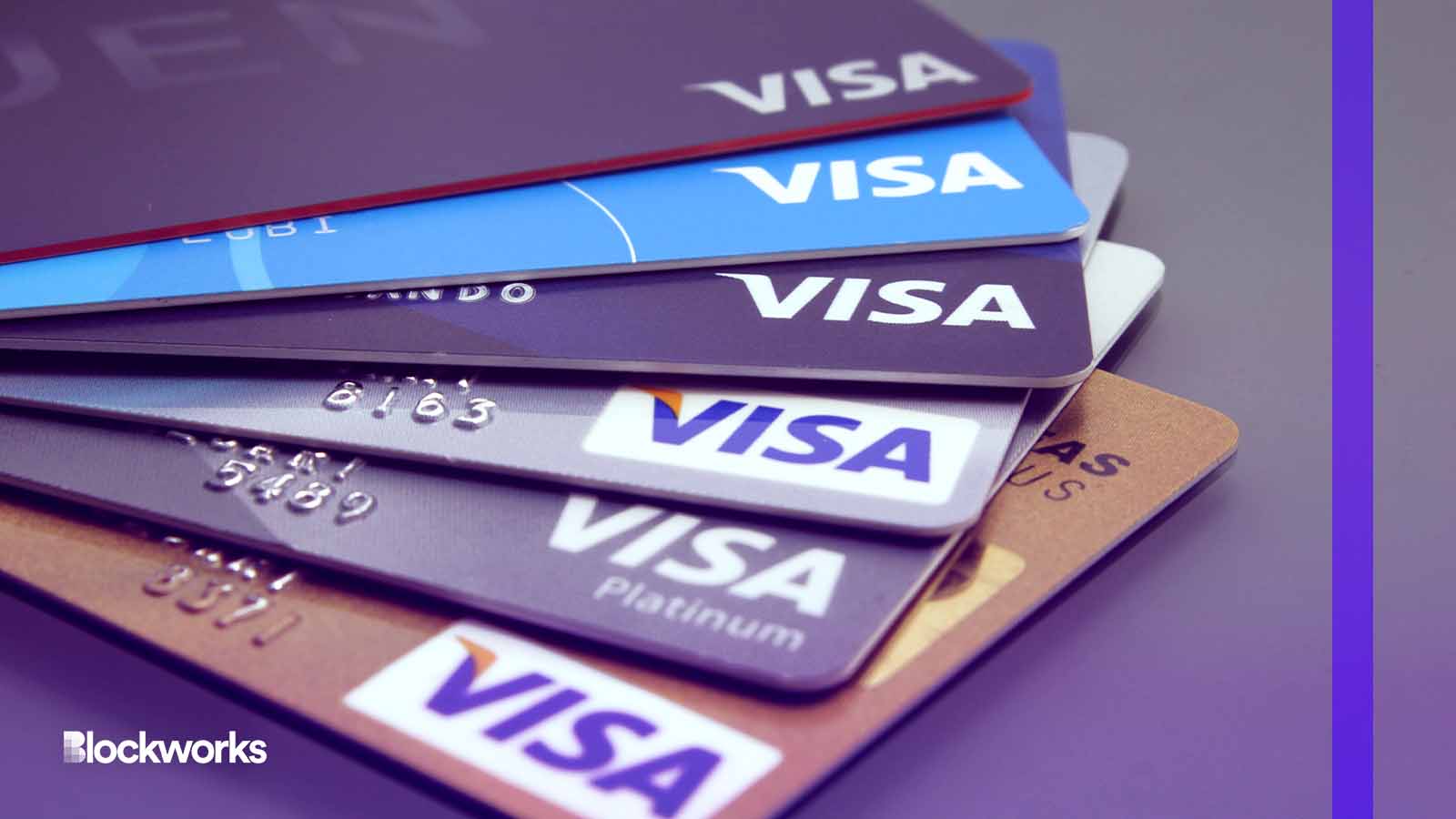Gnosis Visa debit card debuts in Europe, letting users buy with euro stablecoin
This comes after Gnosis partnered with Monerium, granting it access to the SEPA payment system

Kikinunchi/Shutterstock modified by Blockworks
The Gnosis Card, a Visa-enabled debit card connected to an on-chain, self-custodial wallet, officially launched Monday on a stage at the Ethereum Community Conference, or EthCC.
The card and its payment network, Gnosis Pay, have been in development for over a year according to Gnosis CEO and co-founder Martin Köppelmann.
The project combines Visa payment technology with Gnosis’ asset management platform called Safe.
Gnosis partnered with Monerium earlier this month for European transactions, so now users can pay for items in the real world and online with the Gnosis Card using Monerium’s euro stablecoin, EURe.
At present, this is the only way to successfully complete transactions with the Gnosis Card, co-founder of Gnosis Friederike Ernst told Blockworks.
“You can have any tokens in the wallet — but if you’re out of EURe the [transaction] will decline. We will open this up to other [stablecoins] in Q4,” Ernst said in an email.
Ernst added that onboarded users can pay at any Visa terminal globally, and that if the payment is not in euros, a foreign currency exchange will occur like with any other Visa card.
Users can also connect their desired wallet to the card, including MetaMask, Coinbase Wallet and more.
In a previous iteration of the project, the card itself was a hardware wallet, which contained a chip holding the private key to sign messages, Ernst explained.
Gnosis realized this version of the card was impractical for a number of reasons, but mainly, users wouldn’t be able to use the Gnosis Card virtually, such as through Apple Pay or Google Pay.
So the team scrapped that idea and went with the current model: having a smart contract wallet linked to the card that uses token allowances.
“What happens now is that you give Gnosis Pay allowance to your smart contract wallet. This means you don’t need to sign the transaction (tx) every time, with the trade-off that you have to trust Gnosis Pay to not abuse the allowance,” Ernst told Blockworks.
Ernst also pointed out that decentralized apps (dapps) frequently use token allowances, and like most of those apps, the user can define the allowance with Gnosis Pay.
If a user loses their Gnosis Card, the assets are stored on Safe. So if that were to happen, a user’s funds wouldn’t be at risk, and they could just order a replacement card.
The project has also developed an application programming interface (API) that allows any crypto community or third-party wallet to issue their own customized Gnosis cards.
The Gnosis Card will be launching exclusively in the UK and Europe. Compatibility is coming next to the US, Brazil, Mexico, Singapore and Hong Kong, according to a statement from Gnosis.
Updated July 20, 2023 at 12:27 pm ET: Added additional comment from Gnosis co-founder Friederike Ernst. Clarified the Gnosis Card’s function.
Get the news in your inbox. Explore Blockworks newsletters:
- The Breakdown: Decoding crypto and the markets. Daily.
- 0xResearch: Alpha in your inbox. Think like an analyst.






